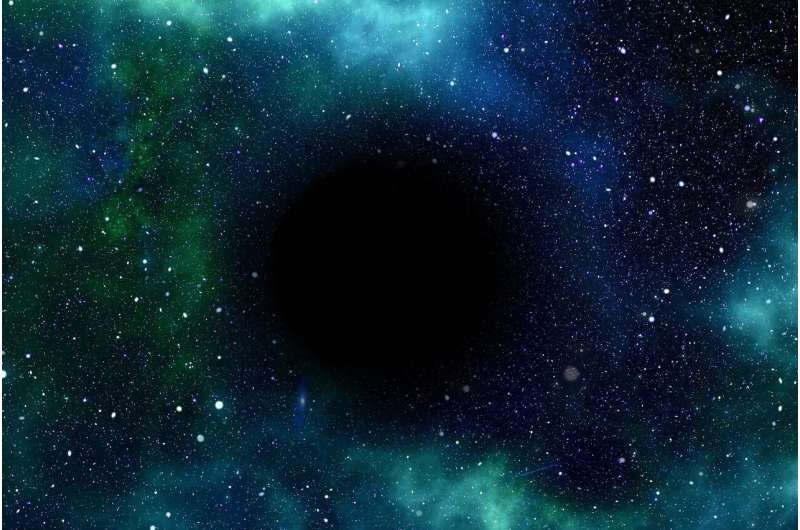Credit: CC0 Public Domain
It was a good week for physics research as work by two teams of theorists working independently may have solved Stephen Hawking's black hole paradox. The first demonstrated that black holes are more complex than thought, while the second followed up on work by the first suggesting that their proposed "quantum hair" resolves the paradox. Also, a team at Pennsylvania State University developed a novel theory of entropy that may solve materials design issues. Called Zentropy, it involves predicting the change of volume as a function of temperature at a multiscale level. And a team at the University of Nevada, Las Vegas discovered a new form of ice, adding to the 20 known solid forms.
In technical news, a combined team from the University of Cambridge and the University of Oslo showed that a mathematical paradox can demonstrate the limits of AI, helping to explain why AI systems have difficulty "knowing" when they are making errors. Also, a team at Carnegie Mellon University created a system that allows users to control robotic hands and arms remotely by demonstrating movements in front of a camera. And a team at Sinhgad Institute of Technology Lonavala developed a new model to automatically detect and filter spam emails. Also, an international team of materials scientists discovered why perovskite solar cells degrade in sunlight and an easy fix for it, one that involves using a different surface treatment to resolve defects.
In other news, a team with members from Karolinska Institutet, the Helmholtz Center Munich and the Technical University of Munich, found that elevated inflammation can persist in immune cells for months after a mild COVID-19 infection. Also, an international team of researchers found evidence of the effects of ancient carbon releases on the planet, suggesting possible scenarios for Earth's future climate.
And finally, a team at The Royal College of Surgeons in Ireland's University of Medicine and Health Sciences found the link between high cholesterol and heart disease to be "inconsistent."
© 2022 Science X Network
























